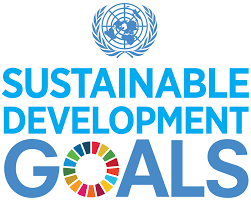The Path to a Sustainable Future: Achieving the Sustainable Development Goals by 2030
Established by the United Nations in 2015, the Sustainable Development Goals (SDGs) are a universal call to action to end poverty, protect the planet, and ensure prosperity for all by 2030. Comprising 17 interconnected goals, the SDGs address a wide range of global challenges, from climate change and inequality to education and healthcare.
Key Objectives of the SDGs
The SDGs aim to tackle pressing issues that affect people and the planet. Some of the key objectives include:
- No Poverty: End poverty in all its forms everywhere.
- Zero Hunger: End hunger, achieve food security and improved nutrition, and promote sustainable agriculture.
- Good Health and Well-being: Ensure healthy lives and promote well-being for all at all ages.
- Quality Education: Ensure inclusive and equitable quality education and promote lifelong learning opportunities for all.
- Gender Equality: Achieve gender equality and empower all women and girls.
- Clean Water and Sanitation: Ensure availability and sustainable management of water and sanitation for all.
- Affordable and Clean Energy: Ensure access to affordable, reliable, sustainable, and modern energy for all.
- Decent Work and Economic Growth: Promote sustained, inclusive, and sustainable economic growth, full and productive employment, and decent work for all.
- Industry, Innovation, and Infrastructure: Build resilient infrastructure, promote inclusive and sustainable industrialization, foster innovation.
- Reduced Inequality: Reduce inequality within and among countries.
The Importance of Achieving the SDGs by 2030
In conclusion, the Sustainable Development Goals provide a roadmap for creating a more equitable, prosperous, and sustainable world for present and future generations. By working together at local, national, and international levels to achieve these goals by 2030,
we can build a better future for everyone on our planet.
Top 5 Frequently Asked Questions About the 2030 Sustainable Development Goals (SDGs)
- What are the Sustainable Development Goals (SDGs) for 2030?
- Why are the Sustainable Development Goals important?
- How can individuals contribute to achieving the SDGs by 2030?
- What progress has been made towards the SDGs so far?
- How do governments and organizations collaborate to work towards the SDGs?
What are the Sustainable Development Goals (SDGs) for 2030?
The Sustainable Development Goals (SDGs) for 2030 are a set of 17 global objectives established by the United Nations to address key challenges facing humanity and the planet. These goals encompass a wide range of issues, including poverty eradication, environmental sustainability, gender equality, quality education, and access to healthcare. By setting specific targets to be achieved by 2030, the SDGs aim to guide countries and organizations in their efforts to create a more equitable, prosperous, and sustainable world for all. Each goal is interconnected and emphasizes the importance of collaboration and collective action to ensure a better future for present and future generations.
Why are the Sustainable Development Goals important?
The Sustainable Development Goals (SDGs) are crucial because they represent a global commitment to addressing some of the most pressing challenges facing humanity and the planet. By setting clear targets across a wide range of areas such as poverty, health, education, gender equality, and climate change, the SDGs provide a comprehensive framework for sustainable development. Achieving these goals by 2030 is essential for creating a more equitable, resilient, and prosperous world for all, ensuring that future generations can thrive in a healthy and thriving environment. The SDGs serve as a roadmap for collective action, encouraging collaboration among governments, organizations, businesses, and individuals to work towards a more sustainable future for everyone.
How can individuals contribute to achieving the SDGs by 2030?
Individuals play a crucial role in contributing to the achievement of the Sustainable Development Goals (SDGs) by 2030. There are various ways in which individuals can make a difference, such as adopting sustainable lifestyle practices, advocating for policy changes, supporting organizations working towards the SDGs, volunteering for relevant causes, and raising awareness within their communities. By making conscious choices in daily life, promoting sustainability, and actively participating in initiatives aligned with the SDGs, individuals can collectively drive positive change and help create a more sustainable future for all.
What progress has been made towards the SDGs so far?
Progress towards the Sustainable Development Goals (SDGs) has been a mixed journey thus far. While some advancements have been made in certain areas, there are still significant challenges to overcome to achieve all 17 goals by 2030. Countries and organizations around the world have taken steps to implement policies and initiatives aligned with the SDGs, leading to improvements in areas such as poverty reduction, access to education, and renewable energy adoption. However, disparities exist between regions and sectors, and urgent action is needed to accelerate progress and address gaps in achieving the SDGs comprehensively. Monitoring and reporting mechanisms play a crucial role in tracking advancements and identifying areas that require additional focus and resources to ensure that no one is left behind in the pursuit of sustainable development.
How do governments and organizations collaborate to work towards the SDGs?
Governments and organizations collaborate in various ways to work towards achieving the Sustainable Development Goals (SDGs) by 2030. One common approach is through partnerships and alliances that bring together stakeholders from different sectors to leverage their expertise, resources, and networks. Governments play a crucial role in setting policies, regulations, and frameworks that support the implementation of the SDGs, while organizations contribute through funding, technical assistance, and on-the-ground projects. Collaboration also involves sharing knowledge, best practices, and innovative solutions to address complex challenges effectively. By working together in a coordinated manner, governments and organizations can maximize their impact and accelerate progress towards a more sustainable future for all.

